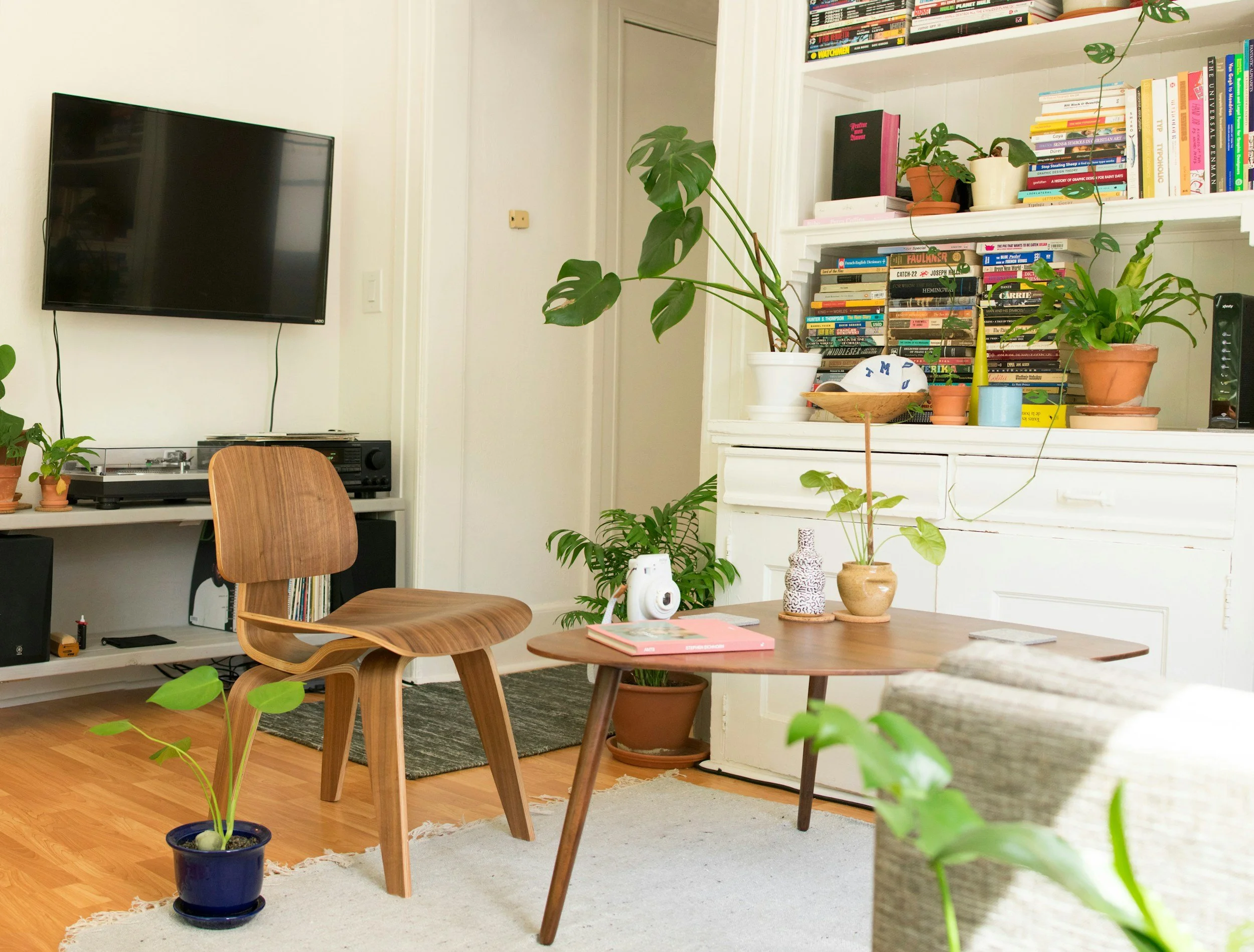Troubleshooting Renting a Home in Japan: With Freebie Forms
Personally, I enjoy house hunting—but let’s be honest: it can become a real hassle, especially when you're short on time or unfamiliar with the rental system in Japan.
Unexpected lease terms, confusing contracts, and the added challenges of renting as a foreigner can turn an exciting process into a frustrating one. That’s why I created this guide—to help you troubleshoot common rental problems (excluding standalone houses), understand the essentials, and avoid missteps.
To make things easier, I’ve included a free downloadable Housing Preference Form and a Checklist Before Signing a Rental Contract (Check Freebie Shelf)— tools I personally used to communicate clearly with real estate agents and speed up the process. You can use them to share your needs upfront and minimize misunderstandings.
In This Blog:
Communicating Your Needs to Agents
Rental Housing Types and Key Terms
Upfront Costs and Insurance
Troubleshooting Common Rental Issues
Q&A: Your Renting Questions Answered
Troubleshooting Support for Rental Disputes
Wrap up
1. Communicating Your Needs to Agents
Start with our Housing Preference Form—it’s the foundation of a smooth rental search. State your budget, location, and must-haves clearly.
This form reduces back-and-forth and helps agents find rental properties that actually match your needs.
When choosing an agent, look for foreigner-friendly real estate agencies that are experienced in handling the specific needs and concerns of expats.
Here are some recommendations.
E-Housing Japan – Foreigner-friendly rental listings across Japan
Real Estate Tokyo (PLAZA HOMES) – English-language service with upscale listings in Tokyo
Village House Blog – Affordable, key money–free rental options and tenant tips
Ken Corporation – Specializes in high-end properties and corporate leasing in Tokyo
2. Rental Housing Types and Key Terms
Single House (For Rent)
Standalone rental homes with full privacy
Townhouses exist but are rare in Japan
Mansion (マンション): In Japan, a mansion refers to a condominium-style building
Sizes vary from small one-room units to spacious family-sized homes
Typically unfurnished, including major appliances (fridge, washer, etc.)
Parking and shared facilities may be limited
Note: In English, “mansion” usually refers to a luxurious, large house—very different from the Japanese usage.
Apartment (アパート)
Usually smaller, more affordable rental
Structure Tip:
Apartments = wood/light steel
Mansions = reinforced concrete (RC) or steel-reinforced (SRC)
Share House
Private room + shared kitchen/bath
Great for social living on a budget
Weekly Mansion (ウィークリーマンション)
Short-term, fully furnished rentals
Ideal for temporary stays or transitions between homes
Key Terms: LDK Terminology (Japanese Layouts)
U.S. vs Japan: In the U.S., rentals are described by bedrooms and bathrooms (e.g., 3BR, 2.5BA). Japan uses the LDK system instead.
3. Upfront Costs and Insurance
Renting in Japan often involves multiple fees upfront:
Prorated rent for the move-in month
Next month’s rent
Key money (Reikin) – 1–2 months, non-refundable
Deposit (Shikikin) – 1–2 months, partially refundable
Guarantor or use of a guarantor company
Fire Insurance – mandatory, around ¥10,000–¥20,000/year
Earthquake Insurance – optional but recommended
Tip: Some agents offer no key money, no deposit, and no guarantor options.
Tip: While the landlord’s fire insurance covers the structure, it does not protect your personal belongings. This is why renter’s fire insurance is mandatory in Japan.
4. Troubleshooting Common Housing Issues
According to the Japan Property Management Association, the top issues foreign renters face are:
Misunderstanding house rules or usage expectations
Not fully understanding the lease agreement
Communication difficulties
Source:日本賃貸住宅管理協会の調査
✅ Issues During Tenancy
Most problems that arise during a tenancy are related to day-to-day living and tend to occur repeatedly. If not addressed early, they can damage relationships with neighbors and lead to ongoing complaints. In some cases, rental disputes may even escalate into legal action—this isn’t unique to foreigners; it happens to Japanese tenants as well.
When I worked on rental programs for a foreign company, it wasn’t uncommon for both parties to involve attorneys to resolve issues, even if things didn’t go as far as a lawsuit.
To avoid “he said, she said” disputes, landlords may ask you to sign a document confirming that you understand the rules at move-in, during your stay, and when moving out. Never sign anything you don’t fully understand—always make sure you’re clear on the rules first.
Even Japanese tenants often struggle with understanding contracts and important explanation documents due to technical industry terms. (I did ! ) So be proactive:
Ask for documents in your native language
Ask the agent to walk you through the details
Have a friend to review them with you
Taking these steps will help protect you from avoidable trouble.
Common Problems and Solutions:
Noise Complaints
Over 50% of foreign tenants report being warned about noise.
Issue: Loud music, parties, late-night conversations, heavy footsteps.
If the noise is excessive and you ignore requests to stop, the affected neighbor may be entitled to seek relocation compensation from you.
Solution: Use headphones, avoid late-night gatherings, keep volume low.
Garbage Disposal
52.1% report being warned for improper trash handling.
Issue: Failing to separate garbage, using incorrect bags, or putting it out on the wrong day.
Solution: Follow your ward’s sorting guide or ask your agent/local office for clarification.
Unauthorized Roommates or Subletting
29.2% were warned for letting others live with them.
Issue: Allowing friends, family members, or others to stay long-term without informing the landlord/Agents—or subletting the unit without approval
Solution: Always get written permission from your landlord before cohabiting or subletting.
Misuse of Shared Areas
Issue: Storing items in hallways, monopolizing laundry machines, leaving bikes in unauthorized spaces.
Solution: Respect shared spaces and follow posted rules.
✅ Move-Out Troubles:
Restoration Costs (Genjō Kaifuku 原状回復)
Fees for restoring the apartment to its original condition can range from ¥50,000 to ¥200,000.
Tip: Inspect the property thoroughly during the walk-through with your agent, and document any existing damage before moving in. (Agents typically take photos of any pre-existing damage.)
Real Story: When I worked in HR/global mobility, one expat family took the curtains that came with the apartment, believing they bought them. The agent later presented photo proof showing they were provided by the landlord. It led to an awkward conversation—especially given the tenant's seniority.
My Story: I dropped a hot frying pan, leaving a dent in the flooring. It cost me ¥35,000! I argued, but they said it was "special coating." I wish I’d used a kitchen mat.
Other Move-Out Issues:
Not cleaning the unit delays deposit refunds.
Failing to cancel utilities results in extra charges.
Not giving 1–2 months’ notice may lead to penalties.
5. Q&A: Your Housing Questions Answered
Q1: What’s the current rental market rate?
A1: For a 1LDK or similar unit in central areas, rent in Tokyo typically ranges from ¥80,000 to ¥200,000/month, while in Osaka, it’s around ¥60,000 to ¥150,000/month.
Q2: Can I break my lease early?
A2: Check for penalties (usually 1 month rent). Negotiate if possible.
Q3: What percent of income should go to rent?
A3: 25–30% is typical.
Q4: I have a pet. What should I do?
A4: Look for properties labeled "Pet OK (ペット可)" or ask using our form.
Q5: Who pays for gas and electricity?
A5: Usually the tenant. Ask what’s included.
Q6: No lease agreement?
A6: Always request a written lease. If the landlord refuses, it’s likely too risky to proceed—best to walk away. Confirm this upfront to avoid future trouble.
Q7: Is there a lease application fee in Japan ?
A7: Japan doesn’t typically have a formal “application fee” like in some countries. However, some agencies may charge ¥10,000–¥30,000 for screening or holding the unit. Always ask what the fee covers and whether it’s refundable.Q7: Where can I buy furniture?
Q8: The air conditioner in my unit finally broken. What should I do?
A8: Contact your real estate agent and request a repair. If the issue wasn’t caused by tenant misuse, they’ll usually arrange a fix quickly.
Q9: How can I protect the flooring from damage?
A9: Use puzzle floor mats, carpets, or rugs. Many of these items, along with handy cleaning supplies, can be found at 100-yen shops at a low cost.
Q10: What should I do for earthquake preparedness?
A10: Use anti-tip devices like seismic balls or furniture-stabilizing poles. Identify emergency exits and stairwells, and prepare a disaster kit with food, water, and essentials. Also, check your city’s hazard map.
Q11: How do I deal with mold?
A11: After using the bathroom, run the ventilation fan or use the air conditioner’s dehumidifier setting. If you spot mold, clean it promptly—especially during the humid rainy season.
Q12: I’m returning to my home country unexpectedly and will be away for about two months. Is there anything I should do?
A12: Yes, take the following steps before leaving:
Notify your landlord or management company about your temporary absence. (There was a case where a landlord couldn’t reach the tenant for unpaid rent, so they ended up sending a subpoena.)
Make sure your rent and other payments continue while you’re away—set up automatic payments if possible.
Unplug appliances, empty the fridge, and take out all trash to prevent mold and odors.
Turn off the water valve and gas supply for safety.
Consider pausing or canceling utility services if you won’t be using them (some companies allow this).
Q13: What happens if I fall behind on rent payments?
A13: Late or unpaid rent can have serious consequences in Japan.
You’ll typically receive a reminder or notice from the landlord or agent.
Continued non-payment may result in penalty fees and eventually eviction.
If a guarantor company is involved, they may pay on your behalf and then demand repayment from you, possibly with added fees.
In some cases, it could affect your visa renewal if legal action is taken.
Tip: If you're struggling to pay, contact your landlord or agent early to discuss options—ignoring the issue will only make it worse.
Q14: My landlord requested a rent increase. What should I do?
A14: Rent is determined by the terms of your lease, and in principle, changes require mutual agreement between both parties.
However, the landlord may legally request a rent increase if there are valid reasons—such as increased taxes or property maintenance costs and so forth.
If you and the landlord cannot come to an agreement, the matter may proceed to civil mediation (which is required before filing a lawsuit). If mediation fails, a court will make the final decision.
Check the “Checklist Before Signing a Rental Contract” in our freebie shelf to make sure you’re comfortable with everything before signing the contract.
6. Troubleshooting Support for Rental Disputes
Rental disputes can be complicated. As a first step, it’s best to consult your city office or a foreigner support center. Legal assistance should be a last resort—but it’s available if needed.
If things go south, it doesn’t necessarily mean going to court. In many cases, both parties' lawyers can negotiate a resolution without litigation.
When to seek legal help:
You receive a subpoena and the situation becomes complex
You’re facing legal threats over unpaid rent, unauthorized subletting, or high restoration costs
You don’t have a written contract and can’t resolve the issue informally (Again—no contract, no rent!)
Where to go for help:
If you’re an employee, your HR department may be able to introduce legal professionals
If you’re a student, contact your school’s international or foreign student support office
If you fall outside these categories, contact the Japan Legal Support Center (Houterasu) or your local city hall for foreigner consultation services.
Head to the Finance/Legal tab on this site and click the link for more info
* Japan Legal Support Center
Multilingual Information Service is available.
Free legal consultation may be available depending on your income.
Legal Help from Private Firms (Not Houterasu):
Call or email
Bring your lease and documentation
List events in the order they happened
Legal fees typically range from ¥5,000 to ¥20,000 per hour
7. Wrap up
Just like employment or financial disputes, housing and neighborhood issues are among the most common inquiries handled by the Japan Legal Support Center.
As someone who has worked in HR/global mobility, I’ve seen many cases involving housing troubles. Never underestimate the seriousness of housing-related issues. Understanding the rules and taking preventive steps is the best approach.
Download our free downloadable Housing Preference Form and a Checklist Before Signing a Rental Contract.
Further reading:
Good luck, and may your Japanese housing journey be smooth and drama-free!
Just a heads-up—most apartments and condos don’t allow Weber grills or open flames due to safety rules. Use one, and yeah… you might get in trouble.





